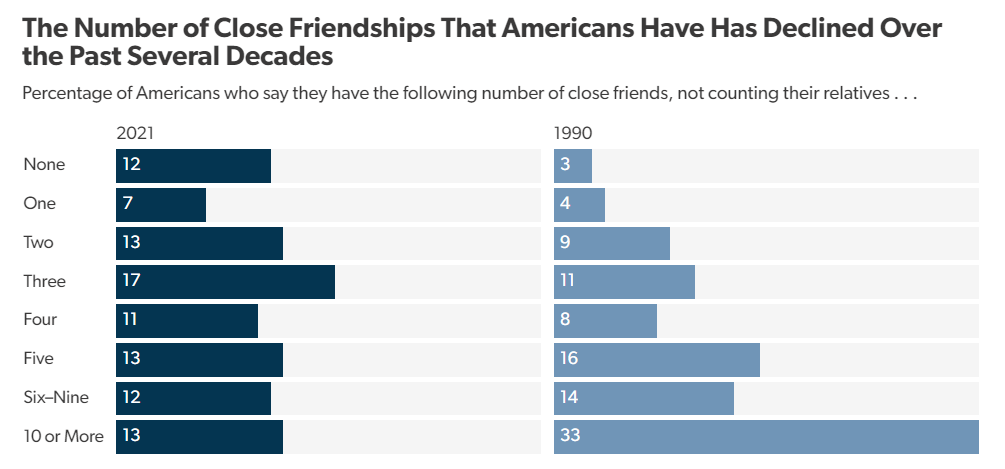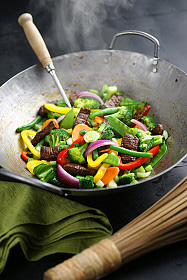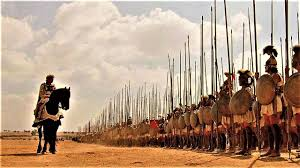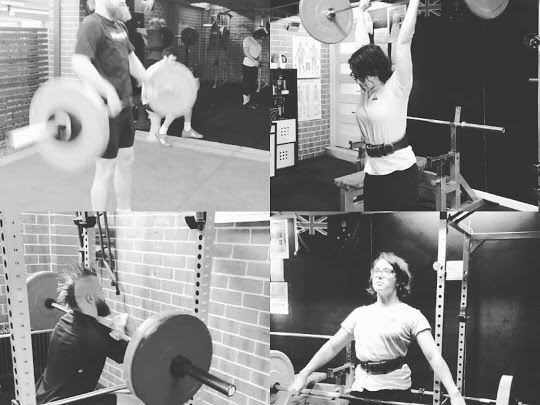3 Months and 13 Steps To Health
At ACE, we organise our training into 4 terms a year, each roughly corresponding to the school terms in Victoria. These periods of about 3 months each are a good length to focus on a particular physical quality.
If you are a previously sedentary person, you'll benefit from establishing good habits.
The previously sedentary person, assuming they are more-or-less healthy and under 50 years old and new to physical training needs to do as follows. This is a 3 month programme which will, if kept up over years, put you in the top quarter of the population in health terms. And you don't need to pay for a gym membership.
The programme is presented with the person getting one new thing to do each week. It's deliberately presented to be absurdly easy; the accumulation of these easy habits will have good results for your health.
Week 1 - Social
Right from week one, talk to a friend or family member each day. Call or meet in person - we need to see faces and hear voices, not see typed text. As well as making you miserable, social isolation is linked to higher mortality from any cause - people live because someone gives them a reason to.

The number of friends people have has declined over the years at the same time as people are getting married later or not at all, and having fewer children. Whether friends or family, people's social circles are shrinking, and this will be a contributor to the Anglosphere's rising anxiety and depression. Fortunately, we can as individuals reverse this. Make a deliberate effort to keep up with friends and family. Begin by talking to one of them each day, you'll be happier, your friends and family will be happier, and you'll live longer.
If you have no friends, then exchange small talk with your neighbours - what are the names of the people on either side of your home, and the three across the road? Every street will have some elderly person or stay-at-home parent who is delighted to chat.
If possible, involve these friends and family in the activities following, for example sharing meals and going for walks with each-other. Relationships do better with frequent contact and shared activities.
Week 2 - vegetables
Weeks 2-6 offer are a clarified version of the Australian Dietary Guidelines. Work on each of these for a week, focus on the vegetables in the second week of this term, fruit in the third, and so on. 
Keep talking to a friend or family member every day. But add 3 cups of vegetables a day - or twice that amount of salad vegetables. Each cup is about 150g. This is three different vegetables. You can't just eat 450g of potatoes. Beans like kidney beans, chickpeas and so on fit into the vegetable category.
So in your second week, you'll become accustomed to eating larger amounts of vegetables. Soups, salads, pasta sauces, curries and mashes will be your friend. (Only about 6.5% of Australians eat this much vegetables. You are now elite). After you've eaten the vegetables, eat whatever you want.
Vegetables provide you many vitamins, especially if you choose ones of different colours, and also fibre which helps your guts work properly, assisting in the healthy digestion of food. The vitamins provided by fruit help in the optimal function of the internal organs, skin and so on.
Week 3 - fruit
Now, still talking to someone each day, and eating the 3 cups of vegetables, add 3 pieces of fruit a day. The ADG would have you eat 300g, so 3 regular pieces of fruit should do it - don't be silly and have three grapes or three watermelons. As with the vegetables, three different kinds of fruit. (Only 44.1% meet this, dropping to 4% when considering whether they get the vegetables and fruit both.) After you've eaten the vegetables and fruit, eat whatever you want.
Fruit offers similar benefits to vegetables.
Week 4 - wholegrains
In the fourth week, still talking to someone each day, and eating the 3 cups of vegetables and 3 pieces of fruit, add 3 cups of cooked wholegrains a day. Oats, barley, wheat, quinoa, and so on. Rice should preferably be brown rice, as white rice is polished removing many of the nutrients. Pasta should be wholemeal. Bread should also be wholemeal.
Commonly people eat large amounts of highly-processed grains. Wholegrain wheat is husked, removing fibre and B-group vitamins, and ground into flour. This flour is then mixed with sugar and water to make doughnuts. As it's processed more it loses nutrients and becomes more energy-dense. This is a major contributor to people of the Western world being overweight but malnourished. So choose wholegrain or wholemeal versions. 
Wholegrains offer B-group vitamins, some minerals and fibre, as well as carbohydrates for energy. Alexander the Great's soldiers of the phalanx ate 1.35kg or some 3,500kCal of wholegrains a day, and they conquered half the world (presumably digging a lot of latrines along the way).
After you've eaten your vegetables, fruit and wholegrains, eat whatever you want.
Week 5 - Protein-rich food
In the fifth week, still talking to someone each day and eating the vegetables, fruit and wholegrains, add in 3 palm-sized (100g) pieces of meat or fish a day (2 eggs counts as one serve) or cups of beans, or handful (30g) of nuts. But not more than 3 serves of red meat weekly. Again, having three different sources daily will be better.
Most people think only of beef, chicken and eggs. But there is also goat, rabbit, mutton, lamb, turkey, duck - and dozens of fish and shellfish just in Australian waters.
Meat, fish, eggs, beans and nuts offer protein which is used to build muscle and other tissue, essential fats which keep the brain and skin working, and many vitamins and minerals.
After you've eaten your vegetables, fruit, grains and protein-rich food, eat whatever you want.
Week 6 - Dairy food
While still talking to someone each day, and eating vegetables, fruit, wholegrains and some protein-rich food, add 3 serves of dairy daily, where a serve is 250ml milk, 200ml yoghurt, or 40g cheese;.
Dairy offers energy, protein, vitamin D and calcium.
After you've eaten your vegetables, fruit, grains, protein-rich food and dairy, eat whatever you want.
Weeks 2-6 food wrap-up
The reader will have noticed that this is a large volume of food. As previously-mentioned, processed food tends to lose nutrition and become more energy-dense. A Mars bar is 200kCal, and so is 600g of broccoli - the Mars bar is a lot easier to eat. Changing to a diet based on the ADG will take some getting used to. If you need to take 2 or even 4 weeks at a particular step to get used to it, that's fine.
Note that I haven't told you to subtract any foods. At this stage, we're not interested in that - we want you to add good food, not subtract bad. If you eat 3 cups of vegetables, 3 pieces of fruit, 3 cups of cooked wholegrains, 3 serves of meat/fish and 3 serves of dairy, you're probably not going to want to chase it down with a pizza and beer anyway - but if you do, good luck to you, you may be overweight but you'll be a lot healthier.
Most people have only 4-5 meals they ever make at home. Make it your task to develop 6 new recipes which make good use of the extra vegetables, fruit, wholegrains, protein-rich foods and dairy you'll be having.
Week 7 - Rest
For the sixth week, once the food is dealt with, set yourself a regular bed and rising time. Assuming a normal rising time of 7-8am, all screens should be turned off by 9:30pm, and lights out by 10:30pm.
The use of screens - small or big - immediately before bed is associated with poorer sleep. There's some speculation about "blue light" and so on, but I'm sceptical. I think it's simply that TV, social media and so on are designed to get your attention, to wake you up. Doomscrolling or idly choosing which show to watch on streaming TV is the psychological equivalent of someone poking you in the side and going, "hey! hey! hey!" Of course you can't sleep after that. So turn your screens off and listen to music, meditate, read a book, or even talk to your spouse.
Five or fewer hours of sleep impairs your driving as much as being over the legal limit for alcohol. Being the equivalent of slightly drunk every day will be bad for your driving, operating heavy machinery, and certainly won't help any professional performance or your family life. And having too little sleep increases your chances of death by any cause.
In importance, rest probably ranks just after a social life. But we left it until after food because many people's sleep is hindered by their poor food choices - alcohol or caffeine close to bedtime, constipation and reflux, and so on. By improving food we should have made sleep easier.
Screens off, go to bed at the same time.
Weeks 8-12 Walk
Now in the eighth week, continue:
- talk to a friend each day
- 3 cups of vegetables a day
- 3 pieces of fruit a day
- 3 cups cooked wholegrain a day
- 3 serves meat/fish a day
- 3 serves dairy a day
and now in the eighth week, add a walk. Begin with walking away from your house for 10', turning around and coming back; in this way you'll do a 20' walk.
In week 9, walk away for 15', and walk back for 15', in this way doing a 30' walk.
In week 10 it'll be 40' total, week 11 will be 50' total, and week 12 will be a full hour total.
Ideally this is part of everyday activities, for example if your normal supermarket is 1.5km away, that's 15' walk each way. Walking to the train station, to work or school are also useful. The walk should be brisk, that is it should require some effort, and mean that you wear one less layer than you'd wear if simply sitting around.
Note that the exercise guidelines are for 2.5-5hr of moderate physical activity weekly. Only 22% of adults achieve the 2.5hr minimum. A 60' walk daily would make 7hr; no doctor will be concerned at your doing extra provided you've worked up to it.
Week 13 - Review
By now you will have built the habits of talking to a friend or family each day, eating 3 cups of vegetables, 3 pieces of fruit, 3 cups of wholegrains, 3 serves of meat or fish, and 3 serves of dairy, turning screens off an hour before bedtime and having a set bedtime, and going for a walk every day.
Fewer than 5% of Australians follow all these habits. By doing these things which cost you no extra money and only a little extra effort, you have joined the elite.
You’ve laid the groundwork. Congratulations, top 25%!
If you’ve made it this far, you’re no longer starting from zero. Your body is ready for real training - progressive resistance, movement skill, and strength you can feel. We run small-group sessions for people just like you. You don’t need to be strong yet. You just need to be ready to begin. If you are, let us know. We’ll show you what comes next.
